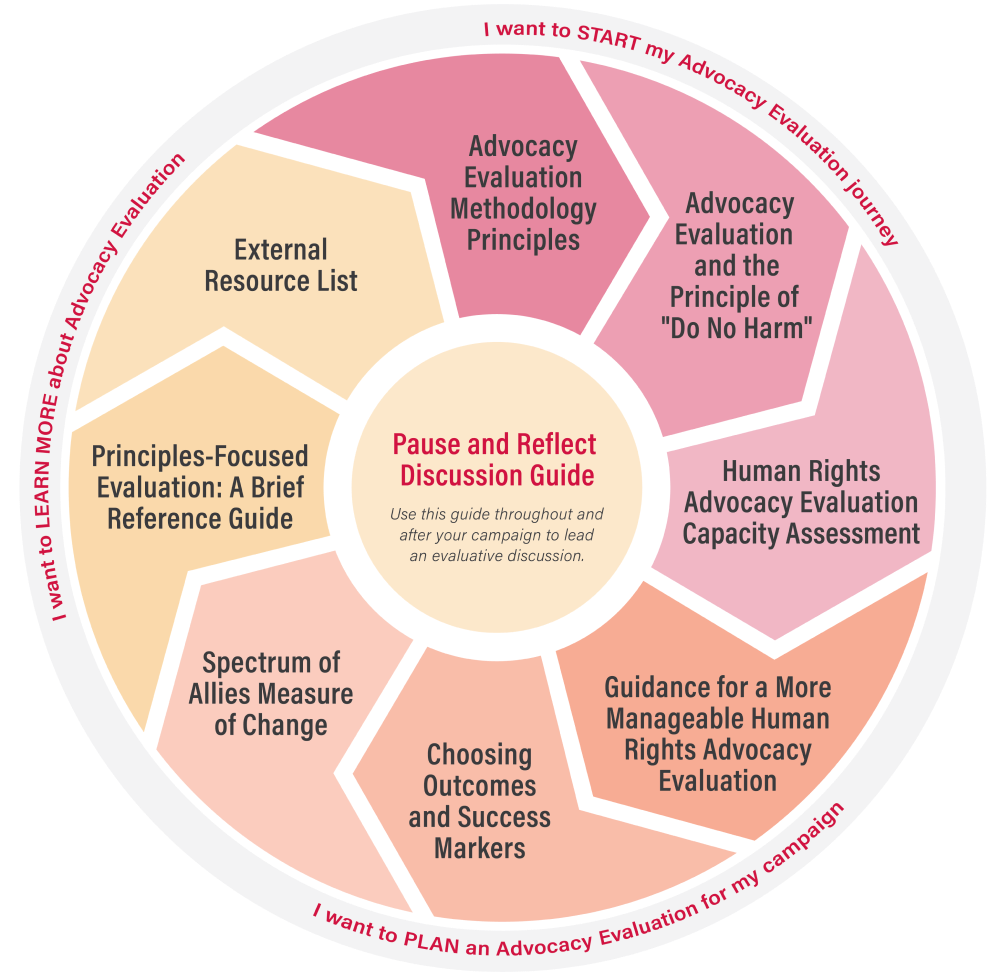Evaluation Advancing Advocacy (E2A) is a capacity development project to support activists and HRDs to use evaluation to develop more effective advocacy campaigns.
Effective documentation and assessment of campaign successes and challenges helps activists and HRDs learn from their actions and adjust as needed. It also helps activists to demonstrate evidence of progress towards advocacy goals – to ourselves, coalition members, funders and others.
We developed a set of simple tools that are adaptable to different campaigns and contexts. These tools are designed to be usable by activists without technical expertise in evaluation.
Click on any section of the toolkit map below to get started!
